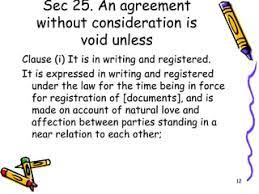A consideration clause describes how money is paid in return for the assurance of receiving anything of value, such as a promise, service, or piece of property.
To specify the overall sum owed for coverage, consideration clauses are included. In return for reciprocal consideration, these terms and conditions specify how payment is to be made. Penalties for noncompliance with criteria by one party are included in certain consideration clauses.
A piece regarding consideration clauses can be found here.
What Is Consideration Clause?
Contracts about real estate and insurance frequently contain consideration clauses. They essentially establish the conditions under which one party must reimburse another for a valued item, such as a home or an insurance policy.
They might also be applied in the event of a share purchase agreement when selling shares to a buyer. Consideration clauses in this instance demonstrate the existence of reciprocal consideration.
Principles of a Consideration Clause
The most commonly used clauses in insurance plans are consideration clauses, which also specify the sum owed for coverage. Usually, these conditions include a payment period as well. It is also used in other sectors. Consideration clauses, which are common in the real estate industry, specify compensation according to the terms of the contract.
Because consideration clauses typically specify that something of value must be given up in exchange for a good deal,. A contract must take into account the interests of each person who participates in it and gains from it.
Although a consideration is best understood as a transaction. For instance, you might get paid if you work for a company and provide them with a service. In real estate, assets are traded for consistent payments.
Consideration is sometimes used to signify the receipt of something valuable, such as contractual rights.
The Consideration Clause’s Objective
Consideration clauses are meant to lessen the possibility of a disagreement about:
- Amount of payment
- Dates of payment due
- Exchange of considerations Limitations
- Amounts of penalties
It is advisable to provide as much specificity as possible in your consideration terms to minimize the possibility of future disputes.
Important Components of a Well-Written Consideration Clause
It consists of:
An explanation of the consideration is given below: The consideration being transferred, such as cash, products, services, or promises, should be expressly stated in the clause.
Timing of the Consideration: The provision should state whether payment will be made in full or in installments, or at the time the contract is signed, upon delivery, etc.
Adequacy of Consideration: The term “adequacy of consideration” refers to whether or not there has been enough consideration to give the contract legal force.
Mutual duty: The phrase should indicate that consideration is provided in exchange for mutual duty, indicating that each party agrees to fulfill specific duties or abide by the contract’s terms.
An illustration of a consideration clause is as follows:
The seller is obligated to deliver 500 units of the product to the buyer by the specified delivery date. Also, the buyer must pay $10,000 under the agreement. In compliance with the terms and conditions of this agreement, the seller guarantees the receipt of the money and undertakes to deliver the products to the buyer.
Both parties agree that the compensation is sufficient and that both parties are receiving it in exchange for a shared responsibility to fulfill their end of the bargain.
All things considered, a consideration clause is an essential component of every contract since it makes it clear what each party is doing or receiving in return for their commitments or duties and guarantees that the agreement is enforceable.
Typical Agreements Including Consideration Provisions
The following are examples of common contracts having consideration clauses:
- Policies for insurance
- Agreements on real estate
- Sales contracts
- Service contracts
- Exchange contracts
FAQs
In English Law, What Is a Consideration Clause?
A promise can only be legally enforced in a contract if it is made in a deed or return for anything of value, or “consideration.”
What Is Mentioned in the Sentence About Consideration?
The precise amount and deadline for premium payments are specified in the consideration clause. The application process and the initial premium payment constitute the legal considerations for a life insurance policy. Also, the effective date might be given.
Which Three Kinds of Consideration Are There?
In contract law, the primary categories of consideration are:
1) Executory consideration—as an agreement between the parties involving commitments;
2) Executed consideration, in which one party fulfills a commitment made by the other;
3) Prior contemplation, which is typically invalid because it relates to actions taken
What Does an Assignment Agreement’s Consideration Clause Mean?
In connection with the assignment or the premises, the assignor and assignee represent and warrant that, other than what is specified in the assignment, the assignee has not paid any additional rent or other consideration of any kind to the assignor.
What Is a Payment for Consideration?
Payments that are exchanged for anything of value are known as consideration payments. They could be money, jewels, property, stocks, and more.
It’s imperative that you also properly craft your consideration clauses. Legal errors may result in paying liquidated damages for an adverse ruling and filing a claim for breach of contract.
Bottom Line
A consideration clause describes how money is paid in return for the assurance of receiving anything of value, such as a promise, service, or piece of property.
Also, Read



